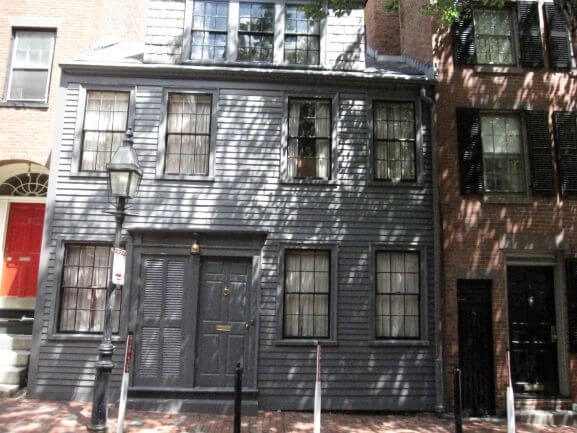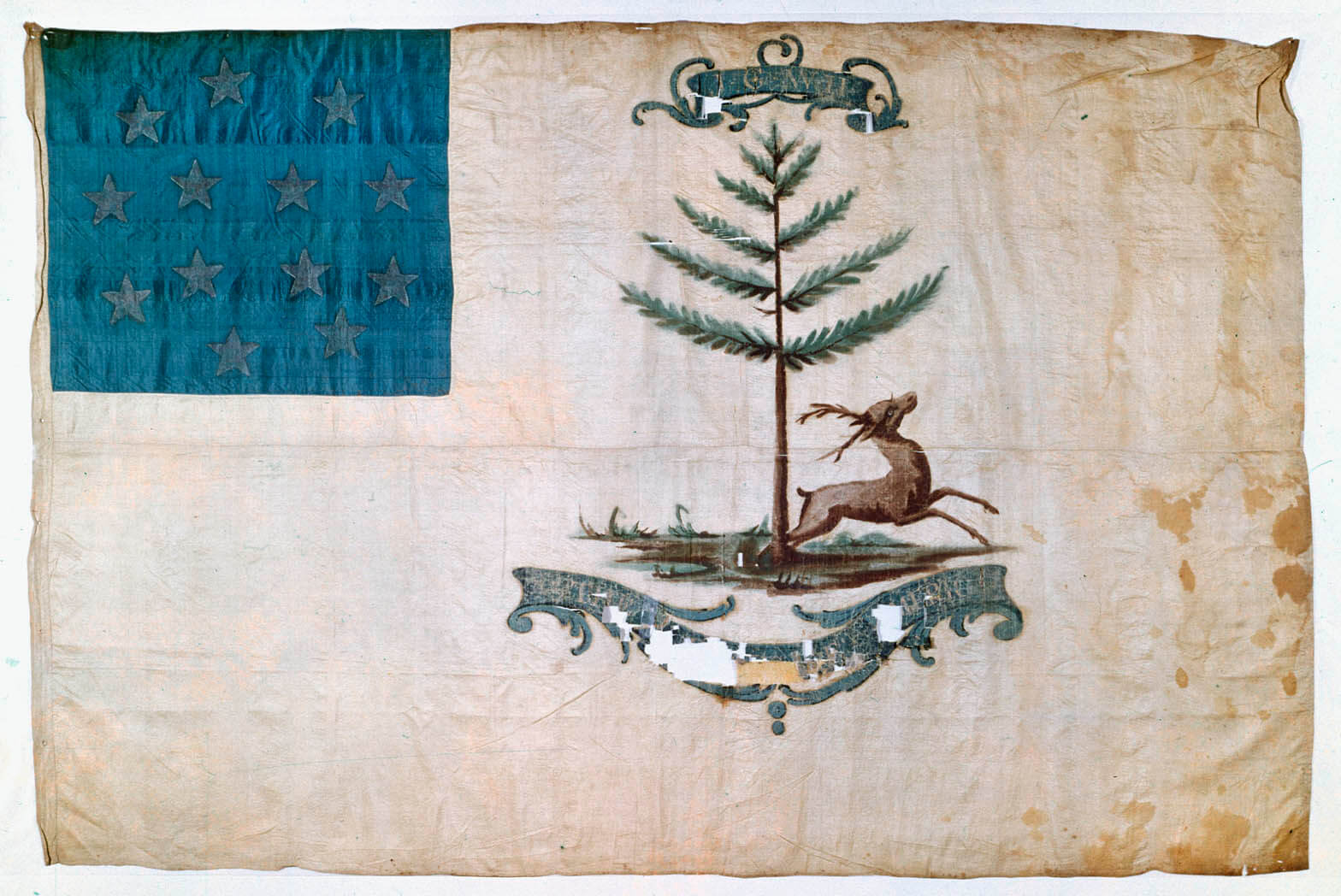Colonel George Middleton
Col. George Middleton was an African American Revolutionary War soldier, a “Prince Hall Freemason,” and civil rights activist, who’s home is now part of the Black Heritage Trail. He was born in 1735 and died in 1815.
Col. Middleton commanded the Bucks of America, a Massachusetts-based Revolutionary War militia. Their primary job was to guard the merchant property of Boston, and for that reason the Bucks may also have been known as “the Protectors.” Middleton’s “Bucks” joined a company of one-hundred-and-three African Americans and Native Americans at the Battle of Bunker Hill in 1775. Middleton was honored by Massachusetts Governor John Hancock for his leadership with a commemorative flag, currently in the possession of the Massachusetts Historical Society.
Middleton took part in an annual celebration in commemoration of Massachussetts’ abolition of slavery, and is known to have brandished a musket at white harrassers disrupting the celebration in 1817.
Middleton was one of the first African Americans to purchase land on the North Slope of Beacon Hill, and built a home on Pinckney Street that still stands today. He was an accomplished musician and businessman, and a vocal advocate for African American rights. He founded the African Benevolent Society, which helped orphans and widows through job placement and financial relief. In 1808, Middleton co-authored an anti-slavery pamphlet with Prince Hall, grandmaster of the first independent African Lodge of Freemasons (founded in Boston in 1784). The document’s most widely-circulated quote was a powerful statement about the value of freedom: “Freedom is desirable, if not, would men sacrifice their time, their property and finally their lives in the pursuit of this?” In 1809, Middleton was appointed the third grandmaster of the African Masonic Lodge in recognition of his activism and prominence in the community.
Article by Sebastian Belfanti, edited by Adam Tomasi









